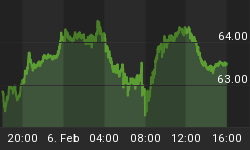The Credit Cycle Is Reacting!

QE: Supply Outstripped Wealth Effect Demand
In March 2015 in "QE: A Failed Experiment" we began reporting on how Quantitative Easing was becoming more about creating over supply than about its intended purpose of creating economic demand.


Cheap money may help consumers' ability to consume via the wealth effect and the cheap financing driving it, but we found globally it was having a much more profound impact on producers and their suppliers. Specifically, it turns out that the expected wealth effect for consumers, paled in comparison to the incentive to producers to dramatically ramp up production, and in turn for their raw material commodity suppliers to explode production output.

An Artificial Equilibrium
From our college economics courses we all remember that at some point it can be expected Demand and Supply will come into balance. However, that balance can be preceded by a massive overshoot of supply if money is made too cheap for too long a period of time. Which is one of the unintended consequences of the failed QE Monetary Policy.

The overshoot of supply and then a slowing of demand has resulted in most global suppliers now chasing slowing demand growth which has critically lead to lost pricing power. Margin and profit problems can be disguised while the easy credit for zombie companies keeps them temporarily alive. These players in their desperation to stay alive and meet loan obligation payments, bring further pricing power pressures to the global markets. This is the stage we are in presently as we have documented on numerous occasions and most recently in the "The Coming Auto Abyss".

Credit Cycle Has Turned
What this paper highlights is how we have now entered another stage in this re-balancing. Specifically, we have a turn in the Credit Cycle as cash flows are shrinking and the requisite credit ratings for new loans is increasingly under pressure.
Credit Cycles can be expected to turn when Cash Flow and EBITDA growth goes negative or slows relative to growth in Debt. This is what in now occurring. Those in the equity market don't yet realize why the HY and IG Bond Market are now feeling significant pain. They soon will!
Credit Cycles Always Lead

Read Full Report: Download PDF
22 Pages
Watch 20 Minute YouTube Video (With 37 Slides)















